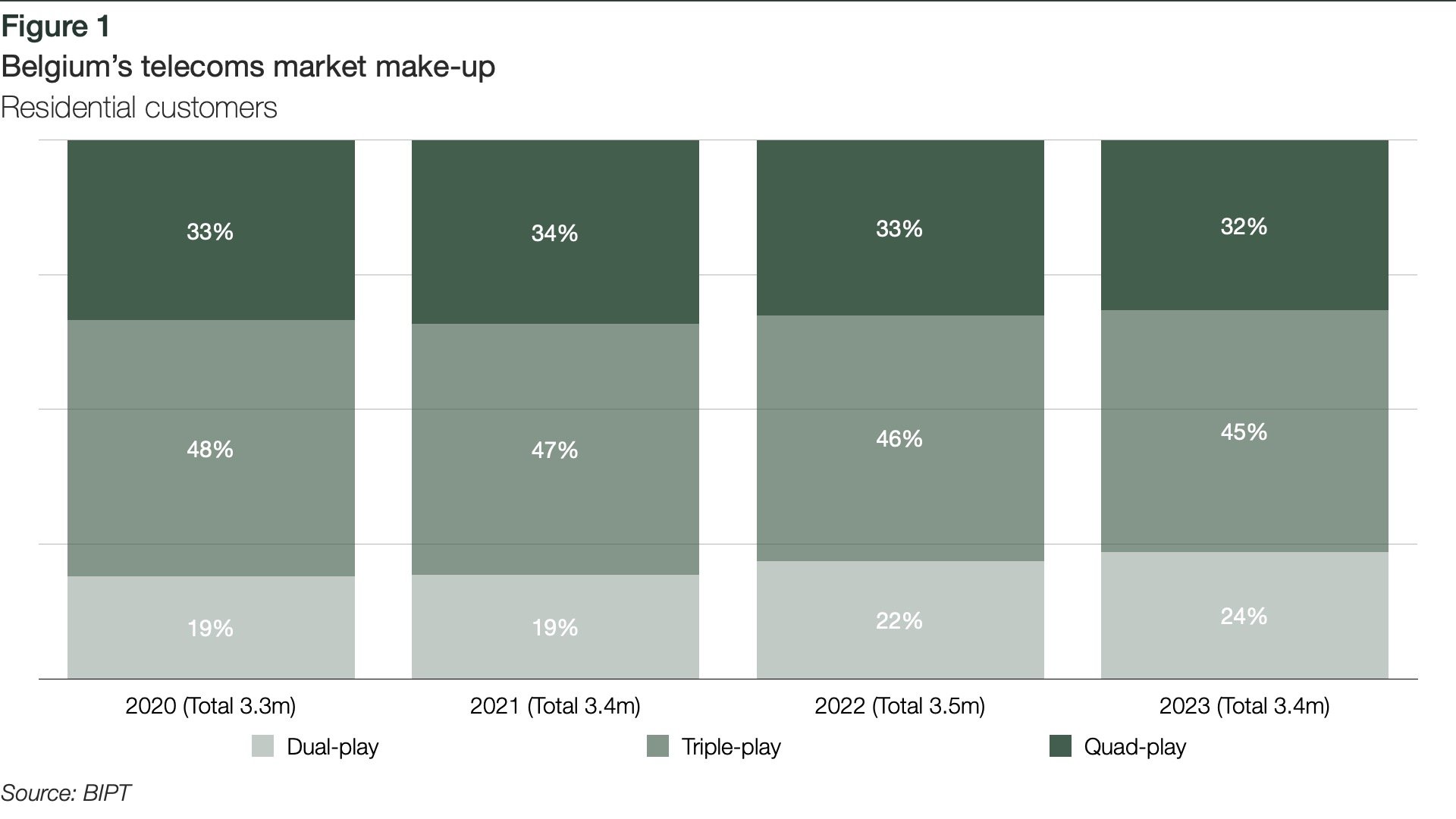With a sizeable jump in potential savings, the BIPT urges consumers to shop around and source from multiple providers to secure the best deal
The BIPT’s report advocates a careful comparison of different fixed and mobile propositions
On 28 October 2024, the BIPT, Belgium’s communications regulator, published a study outlining the potential savings consumers can make by selecting different operators for their fixed and mobile needs. Its price comparison study, focused on fixed and convergent (i.e. fixed and mobile) telecoms services, is based on usage profiles for customers across Belgium, noting that consumption of fixed and mobile data has continued to increase. The report also made mention of the fact that the telecoms sector has made significant investments into new infrastructure, e.g. fibre and 5G, to support services such as streaming, reflecting the changing profiles of customers and their demands of providers. The BIPT made two key observations:
Regardless of usage profile, consumers looking for the best possible quality and price of product consistently benefit from comparing offers; and
That these consumers should consider the possibility of choosing separate operators for their fixed and mobile services.
Market analysis demonstrates a slight decrease in triple-play and quad-play take-up
The BIPT’s report emphasises that consumers’ telecoms requirements are far more diversified today than in the past, with the most popular bundles including fixed broadband, TV, landline and mobile services. In 2023, 45% of consumers in Belgium were opting for a “3-Play” bundle (i.e. a triple-play package of TV, broadband and landline services), with slightly fewer (32%) taking “4-Play” bundles (3-Play plus mobile), as Figure 1 illustrates. Meanwhile, the proportion of consumers taking dual-play bundles (including only broadband and landline, while sourcing mobile and TV services elsewhere) has steadily increased over the past four years, rising from 19% in 2020 to 24% in 2023. While a gradual rather than remarkable increase, the BIPT’s analysis suggests a trend in consumers forgoing larger bundles in favour of sourcing services from multiple providers.
Pricing analysis divides users into nine groups, ranging from families with high connectivity needs to individuals without mobile services
By analysing customer behaviour through nine separate usage profiles – from individuals without a mobile connection all the way up to families with substantial budgets for telecoms services – the BIPT report demonstrates that profiles placed in the mid-to-upper budget level could make the most significant savings. This reflects a more detailed analysis of the market than last year’s BIPT report, which only identified seven user profiles. According to the regulator, the greatest savings on average monthly costs are possible by opting for “mixed solutions”, which means consumers purchasing fixed and mobile services from different operators. This enables them to spend less overall than if they were to take bundles from the largest providers, Orange, Proximus and Telenet. The BIPT underlines that while its analysis is currently accurate, prices change regularly and increased consumer engagement with the market is needed in order to bring about the most significant savings.
A jump in potential cost savings suggests there is much to be gained by consumers engaging actively in the market
This latest study represents the BIPT’s tenth annual analysis of pricing for fixed and convergent services in Belgium. Its findings reflect research from Ireland's regulator ComReg, which advises customers to use its dedicated comparison tool to shop around and find a cheaper deal in order to avoid costly mid-contract price increases. The BIPT’s maximum saving figure of €663 (£556) annually, or €55 (£46) per month, calculated for families with higher connectivity requirements, indicates that there is much to be gained for consumers that engage actively in price comparisons. The potential saving represents a significant jump from the regulator’s 2023 study, which indicated possible savings of up to €300 (£252) annually, €25 (£21) per month. Beyond recommending consumers adopt a mixed solutions approach to reducing telecoms bills, the BIPT provides support via a regulated social tariff for fixed telephony and broadband. This was updated in March 2024, moving away from offering eligible households a discount to mandating maximum prices for a ‘social internet offer’ for a 30Mbps standalone broadband service as well as dual-play bundles.


